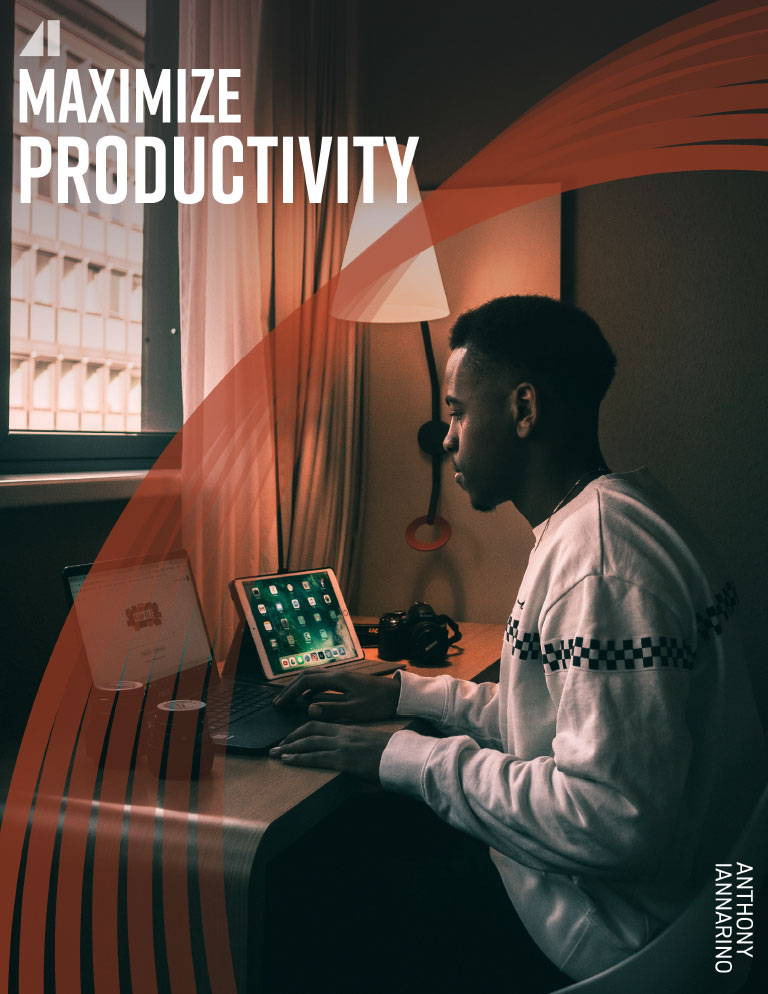Some of the things that lead to success, greater productivity, and goal attainment seem small and insignificant when they are critically important. However, some small disciplines are much more valuable than you might expect at first glance. One discipline that produces outsized results for a small amount of time and energy is planning your week and days before they begin.
The Value of Planning Your Week
It is impossible to overstate the value of planning your week before it starts. Of all of the things you might do on a Saturday or Sunday, none will do as much to ensure you are productive or do more to move you closer to your goals.
Planning your week allows you to do two things that improve the amount of work you get done, as well as the quality of your work. First, planning your week ensures that you budget your time, deciding how much time you are going to spend on the specific initiatives and projects necessary to your goals. Second, time blocking allows you to block the time to do the work, shifting you out of reactive mode and into one that is proactive.
For most people, Monday begins with a review of what showed up in their email inbox, costing them the first couple hours, the most dangerous hours of the day, if you want to be productive. Because they haven’t decided and planned to do what is most important, they lose time trying to decide what to do, something difficult to do when you have a glut of possibilities, all of which seem to be important and most of which are loosely tied to your work.
Many people, maybe even most, start all of their workdays the same way, without a plan, and without a commitment to what’s most important. Lost hours can never be reclaimed or refunded; they are gone forever, as is the opportunity to spend them on something important to your future.
When you start your week with a plan, you have done one of the most important things necessary to being productive and chasing your goals; you have already decided what you are going to do and with whom you are going to do it. The relatively small amount of time you spend planning your week returns a multiple of that time by eliminating the need to decide.
Having to decide what to do opens up the possibility of being distracted or procrastinating. While others are still trying to dig out of the deluge of emails and notifications, you will have finished some major piece of work.
Something as simple as deciding what to do with the first ninety-minutes of your day will improve your results by ensuring you do what is most important first, preventing you from allowing lesser things to infringe on your time.
The Value of Planning Your Days
If you have planned your week, you can expect interruptions and shifting priorities. No matter how well you planned, someone on your team will need something, or some client is going to ask for your help with a project that is important to both of you. Your plans can and will change, and you will have to adjust as the week goes on.
There is no reason to plan every minute of every day, filling your calendar, and leaving no room for responding to others or space for what shows up that isn’t on your calendar.
What seems to work best is to plan three blocks of about ninety-minutes. Those three blocks amount to four and half hours of an eight hour day, leaving three and half hours for responding to what others need from you, to handle the problems or challenges that find their way to your desk, to take a call from a client or to follow up with the people who have sent you some communication while you were doing what is most important.
Because your priorities are going to shift throughout the week, taking fifteen minutes every evening to recalibrate your calendar and your task lists is crucial. President Eisenhower, known for his planning, on more than one occasion, said, “Plans are worthless, but planning is everything.”
What Is Essential
You don’t have to overthink the process of planning your week and your days. What is most important is that you decide what you want to accomplish, and block time on your calendar to do that work before the day or week starts, preventing you from losing time trying to decide what to do.
It’s not at all important that you get your plan exactly right, nor is it critical that you follow your plan with no deviations, detours, or distractions, all of which are at some level, unavoidable. The very act of deciding what is important and prioritizing that work will improve your ability to spend time on what is essential to your success and your goals, even if, like everyone else, you have to adjust from day-to-day.
As a final point, you will find that doing what is most important in the first ninety-minutes of each day will do as much to improve your results as almost anything else. The earlier you complete that first and most important block of work, the less likely you are to find that your day is over without you accomplishing what you decided was the greatest use of your limited time and energy.

Get the Free eBook!
Take control. Maximize your productivity.
Being productive means getting important things done. The stuff that moves you toward accomplishing your most important goals. The strategies in this eBook will have you producing the results you want.
Download Now







.jpg?width=768&height=994&name=maximize-productivity-ebook-v3-1-cover%20(2).jpg)


